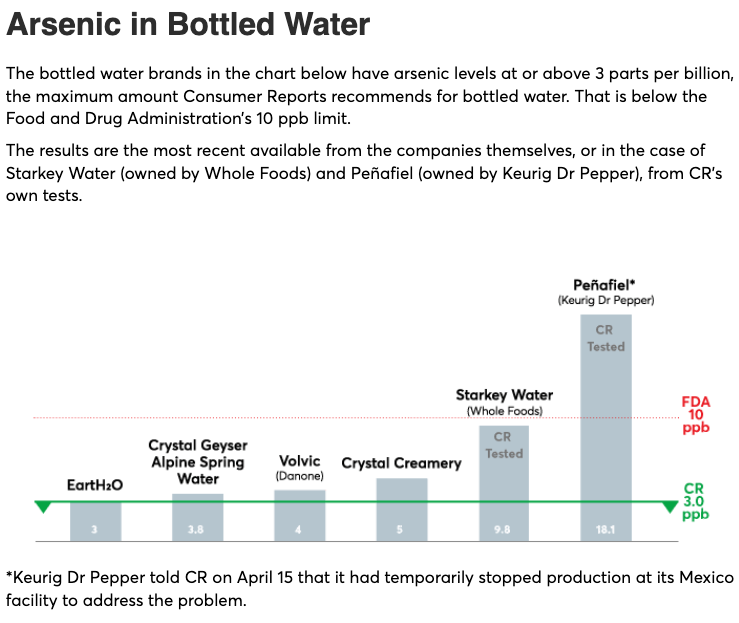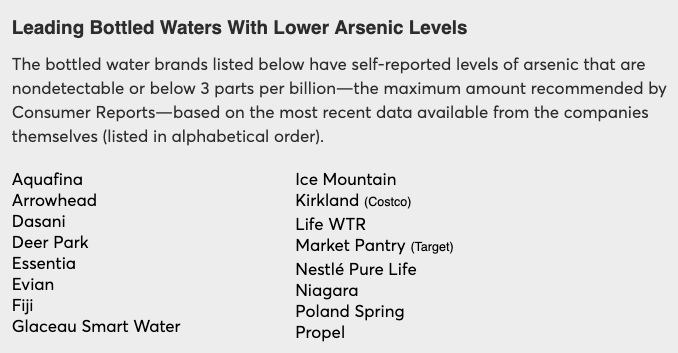Toxic Arsenic Found In Major Bottled Water Brands
Consumer Reports (CR) is now warning the public about a serious issue, where 11 brands of bottled water, out of 130 had detectable levels of highly toxic arsenic, and six of those brands had levels above 3 parts per billion (ppb) — the maximum level allowed by CR.
"Of those, six had levels of 3 ppb or higher," according to CR officials. "These brands are Starkey owned by Whole Foods, Peñafiel owned by Keurig Dr. Pepper, Crystal Geyser Alpine Spring Water, Volvic owned by Danone, and two regional brands, Crystal Creamery, and EartH₂O."

Research from the World Health Organization (WHO) has shown long-term exposure to arsenic in drinking water can cause cancer and skin lesions. It has also been linked to cardiovascular disease and diabetes. In children, arsenic can cause negative impacts on cognitive development and increased deaths.

The Food and Drug Administration (FDA) limits arsenic in bottled water to 10 ppb. But CR is now demanding the federal government revise the level to 3ppb.
"It makes no sense that consumers can purchase bottled water that is less safe than tap water," says James Dickerson, Ph.D., chief scientific officer at CR. "If anything, bottled water—a product for which people pay a premium, often because they assume it’s safer—should be regulated at least as strictly as tap water."
Keurig Dr Pepper (KDP) spoke with CR last week and said its Peñafiel production facility in Mexico had been taken offline for several weeks while it would improve its filtration system to lower arsenic level. The company said it conducted new testing after questions from CR found levels above the federal limit, at an average of 17 ppb.
Whole Foods took over the brand Starkey Water in 2013, from late 2016 through early 2017, the company recalled more than 2,000 cases of water after tests by regulators showed high levels of arsenic beyond the federally mandated threshold.
In the last five years, consumers have spoken out against municipal tap water and resorted to bottled beverages. Consumers as a whole aren't educated enough to understand the bottled water industry isn't heavily regulated - so the claims of fresh, natural water are somewhat misleading. CR ended the report by linking EPA’s website for water testing - it says that if you want to limit your exposure to arsenic water, get your water tested immediately.



